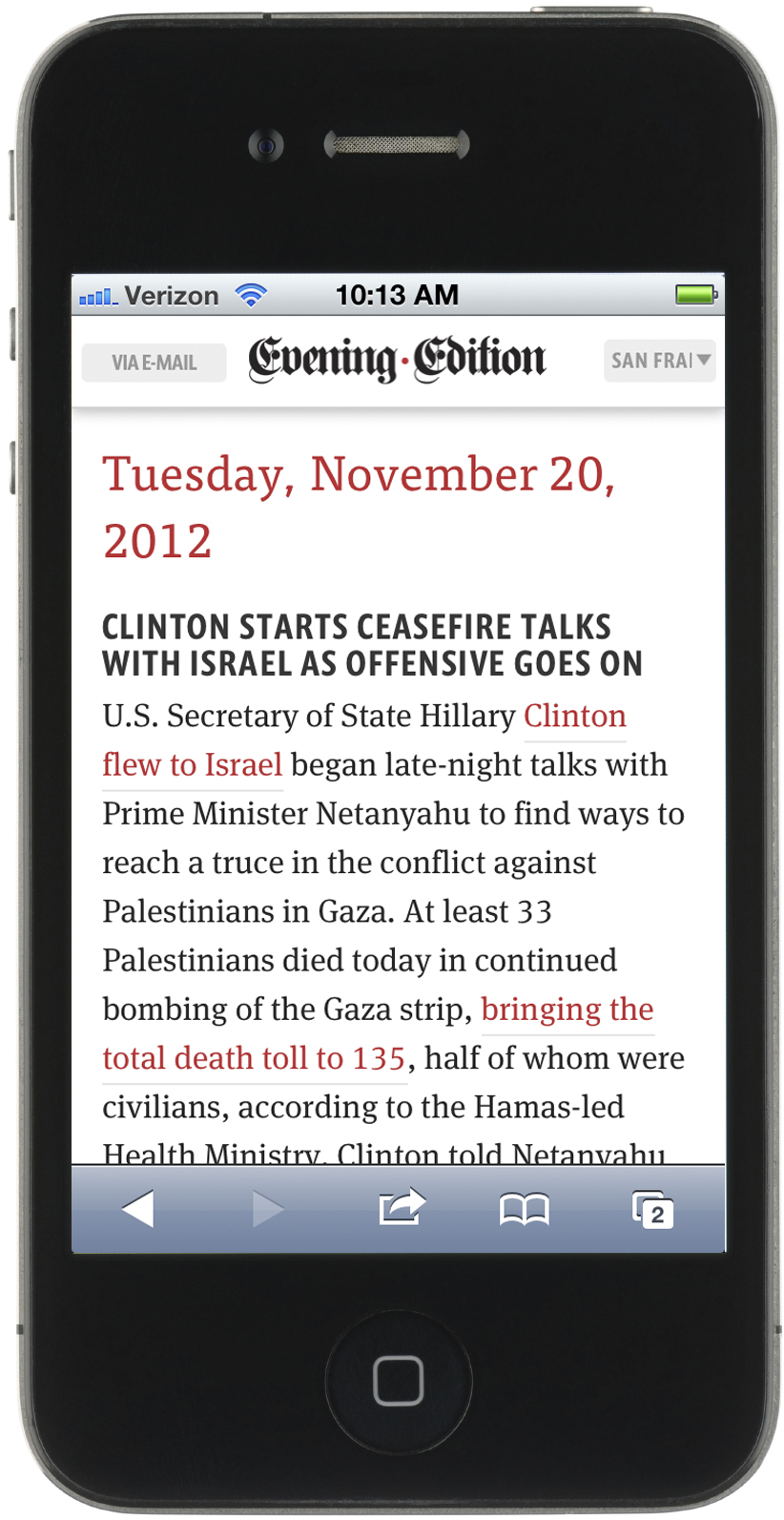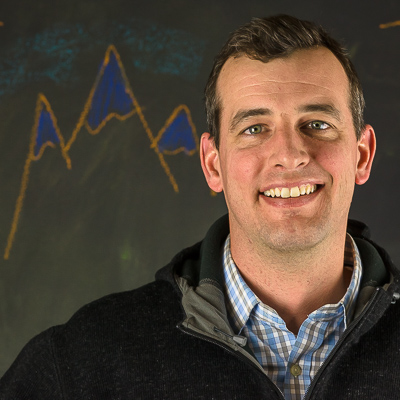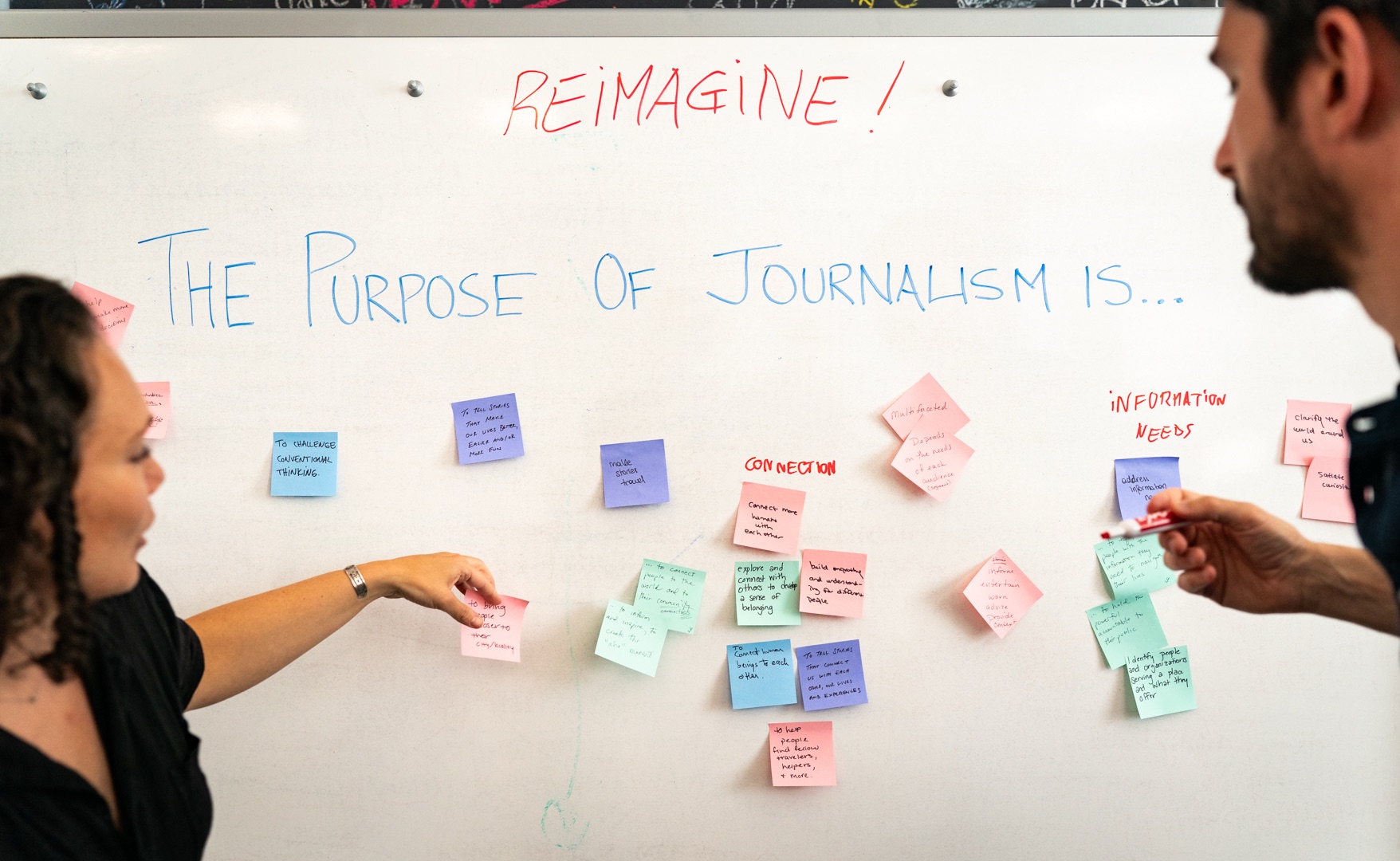
For Evening Edition — a journalism startup dedicated, ironically, to slow news —quick meant taking a spark of an idea from a Wednesday night Twitter conversation, building it, and launching the product four days later.
“In less than a week’s time we went from a joke on twitter, to something that was live and people could subscribe to,” says Jim Ray, one of Evening Edition’s co-founders.
In early July, Ray and co-founder Mike Monteiro (click that link, it's a good one)had been casually following a Twitter discussion about the new relevance of the iPad as a platform for evening news when Ray joked, “A return of evening editions?”
Well, no, not yet.
But by the next Monday? Yes.
Monteiro, Ray’s boss at Mule Design Studio, saw Ray’s tweet and sent a message that said, basically, “That’s brilliant. Let’s figure out how to build this.”
Over the next few days they did just that, building a website rather than a native app, which meant that as soon as they were ready the site could go live, Ray says. There would be no waiting around for app approval from Apple or Google.
They used a WordPress backend and responsive design techniques and began publishing a San Francisco edition edited by Anna Rascouët-Paz, who works at scientific publisher Annual Reviews and previously covered sovereign debt and currencies for Bloomberg News in London.
The basic premise of Evening Edition is to publish “a succinct summary of the day’s most important news” each weekday at 5 p.m., reads Mule’s description. Each edition is written by a professional editor who gives an overview of the news and links to original reporting from a variety of sources.
A design shop like San Francisco-based Mule might seem an unlikely candidate to build a news website, but Mule has a history of working for media organizations —All Things D, ProPublica, and the John S. Knight Journalism Fellowships among them.
On top of that institutional experience, Ray had spent the previous decade or so as a programmer at the Chicago Tribune and MSNBC and had only been out of the news business a year when Evening Edition was born.
In the four months since launch the group has expanded with editions in Paris and London. Though a North American expansion would have seemed natural, Ray and Monteiro liked that many miles and time zones separated each edition, which would help steer readers toward reading at night as intended. But expansion was also guided by the past of least resistance thanks to Rascouët-Paz’s connections and ability to find editors in those cities, Rascouët-Paz says.
The publishers and editors embrace what they call “slow news” and believe they provide a service for people — not journalists — who don’t spend all day on Twitter or checking in on the world’s happenings.
“We really wanted to rethink this ‘always on, always connected’ aspect to news,” Ray says, “and to take a more thoughtful approach”
“We like to think the people are also the people who subscribe to the Economist and read the New Yorker,” he says, “people who are interested in bigger things.”
That said they recognize that serious, important news is sometimes a tough business to be in. “What people tell you they want to read is sometimes different from the headlines they click on,” he says.
Still Evening Edition is likely to stick with their format — including a sponsorship-driven business model — for the foreseeable future and the team is looking for an East Coast editor.
Ideally they’ll have 12 editions around the world, but they have the somewhat conflicting desire to do local editions — say for people who live in San Francisco and want to be in the loop on news in their city, Ray says.
So far the project has been a success with about 30,000 page views a week, readers around the world, and even criticism about the way they covered the recent conflict between Israel and Palestine.
“Maybe that’s a sign that we’ve made it,” Ray jokes.
And they’re happy to be among a bevy of journalism startups over the last few months — namely Circa, Quartz, and Next Draft.
“A lot of people mentioned (Circa) in the same breath as us and we took that as very much a compliment,” Ray says.
Whether being one among a handful of startups is good news or not, the founders say one thing is clear: “It’s a really interesting time to be a news nerd.”
About the author





